METHYLPREDNISOLONE - ORAL
PHONETIC PRONUNCIATION: (METH-il-pred-NIS-oh-lone)
COMMON BRAND NAME(S): Medrol
GENERIC NAME(S): methylprednisolone
Uses
USES: Methylprednisolone is used to treat conditions such as arthritis, blood disorders, severe allergic reactions, certain cancers, eye conditions, skin/kidney/intestinal/lung diseases, and immune system disorders. It decreases your immune system's response to various diseases to reduce symptoms such as swelling, pain, and allergic-type reactions. This medication is a corticosteroid hormone. Methylprednisolone may also be used with other medications in hormone disorders.
How to use METHYLPREDNISOLONE - ORAL
HOW TO USE: Take this medication by mouth as directed by your doctor, usually with food or milk. Follow your dosing instructions carefully. The dosage and length of treatment are based on your medical condition and response to treatment. Different dosing schedules exist for this medication. If you are not taking the same dose each day or if you take this medication every other day, it may help to mark your calendar with a reminder. Consult your doctor or pharmacist if you have any questions. Do not increase your dose or use this drug more often or for longer than prescribed. Your condition will not improve any faster, and your risk of side effects will increase. Do not stop taking this medication without consulting your doctor. Some conditions may worsen or you may experience withdrawal symptoms (such as weakness, weight loss, nausea, muscle pain, headache, tiredness, dizziness) when this drug is suddenly stopped. To prevent these withdrawal symptoms when stopping methylprednisolone, your doctor may reduce your dose gradually. Consult your doctor or pharmacist for more details and report any withdrawal reactions right away. See also Precautions section. Tell your doctor if your condition does not improve or if it worsens.
Side Effects
Precautions
Interactions
Overdose
Images
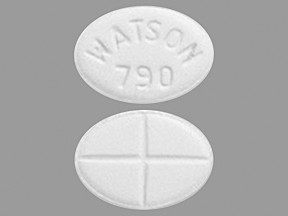
- color
- white
- shape
- oblong
- imprint
- WATSON 790

- color
- white
- shape
- oblong
- imprint
- WATSON 790
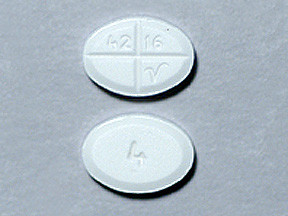
- color
- white
- shape
- oblong
- imprint
- 42 16 V, 4
Reviews
Faq for METHYLPREDNISOLONE - ORAL
Methylprednisolone is used to treat various conditions such as inflammation, allergic reactions, immune system disorders, and certain types of cancer.
Methylprednisolone works by reducing inflammation and suppressing the immune system's response to certain diseases or substances that cause allergies.
The common side effects of methylprednisolone include stomach upset, headache, dizziness, insomnia, increased appetite, weight gain, and mood changes.
Methylprednisolone should be taken exactly as prescribed by your doctor. Usually, it is taken with food or milk to help minimize stomach upset. Do not stop taking the medication suddenly without consulting your doctor.
It is generally advised to avoid alcohol while taking methylprednisolone, as it may increase the risk of stomach irritation and other side effects.
Methylprednisolone may interact with certain medications, including blood thinners, antibiotics, antifungal drugs, and HIV medications. Inform your doctor about all the medications you are currently taking.
Methylprednisolone usually starts working within a few hours to a day of taking the medication. However, the full effects may not be seen for several days or weeks.
It is important to consult with your healthcare provider before taking methylprednisolone if you are pregnant or breastfeeding, as it may have potential risks to the unborn baby or nursing infant.
Methylprednisolone can be used in children but should be done under the supervision of a healthcare professional, as the dosage and duration of treatment may vary depending on the child's condition.
Disclaimer
IMPORTANT: HOW TO USE THIS INFORMATION: This is a summary and does NOT have all possible information about this product. This information does not assure that this product is safe, effective, or appropriate for you. This information is not individual medical advice and does not substitute for the advice of your health care professional. Always ask your health care professional for complete information about this product and your specific health needs.
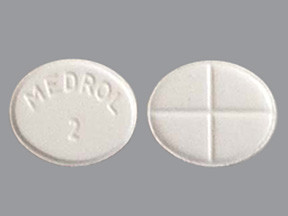
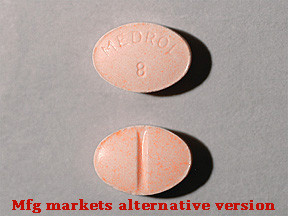
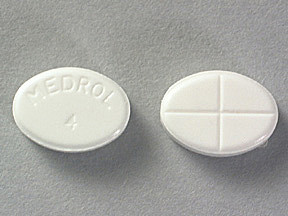
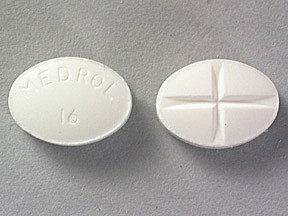
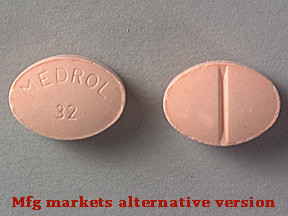
No Reviews Yet